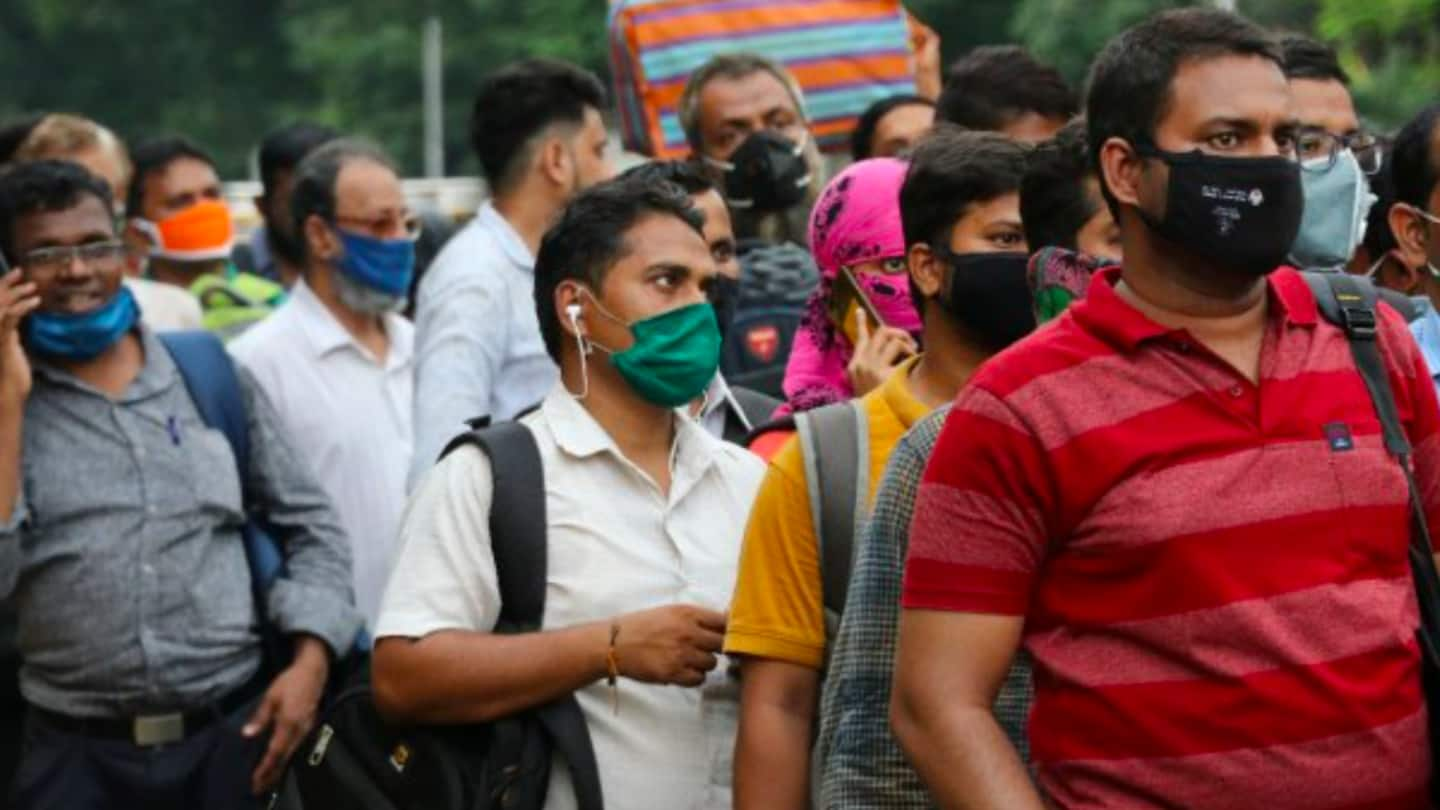
Has the second wave of coronavirus started in India?
What's the story
The number of coronavirus infections in India has crossed the 50-lakh mark. The Union Health Ministry's Wednesday bulletin showed that India reported a record 1,290 fresh fatalities in the past 24 hours.
With daily new infections of 90,000 every other day, questions about hitting the peak, flattening the curve, the second wave, remain. When will the second wave arrive or are we there already?
Outbreak
India has reported 50 lakh cases, over 80,000 deaths
According to the Health Ministry's data, India has reported 50,20,359 COVID-19 cases, including 82,066 deaths, 9,95,933 active cases, 39,42,360 recoveries.
The number of cases has been rising steadily, reaching a record single-day spike of 96,551 fresh infections on September 10, the Ministry's data showed.
To say a second wave has arrived, there needs to be a significant decline in infections, which has not happened.
Region-wise
However, some regions could be seeing second wave
Different regions of India are witnessing different stages of the pandemic.
Some regions are seeing an exponential rise in infections, others a decline, while in some places, the outbreak has started surging again after a lull.
Dr. Randeep Guleria—a member of India's COVID-19 Task Force and the Director of All India Institute Of Medical Science (AIIMS), Delhi—believes some regions are witnessing a second wave.
Information
In Delhi, cases rise again due to 'COVID-19 behavior fatigue'
"In some areas, there is COVID-19 behavior fatigue," Dr. Guleria told News18, citing the example of Delhi, where the outbreak has picked up again. "People are now tired of taking safety measures and in Delhi, they can be seen without masks and gathering in crowds."
Second wave
Outbreak peaking at different times in different regions
While the number of infections has risen in Maharashtra and Uttar Pradesh, there are signs of stabilization in Karnataka, while Tamil Nadu is seeing a decline, Union Health Secretary Rajesh Bhushan told News18.
Dr. Giridhar Babu—an epidemiologist and a member of the COVID-19 Task Force—said different regions are peaking at different times, depending on the introduction of the infection, population movement, precautions followed, etc.
Quote
'Cannot technically say there is a second wave'
Dr. Babu said, "The first wave has not completely subsided in areas with high transmission (from the beginning such as Mumbai and Delhi). Without touching the baseline or at a lower minimum, we cannot technically say there is a second wave."
He added, "[It] depends on how one looks at the data. In my opinion, this is a continuation of the first wave."
ICMR
India 'distributed the curve' through lockdown: ICMR chief
Separately, Indian Council of Medical Research (ICMR) Director-General, Professor Balram Bhargava, told News18 that India may have avoided a peak and a second wave.
He said India took lessons from the US and Europe, where a clear peak, a dip, and a second wave were witnessed.
He said we didn't have a huge peak at all and "distributed the curve" through an "effective lockdown."
Quote
'Makes no sense to talk about peak'
However, Health Economist Rijo John opined, "It's quite likely that India will see cases rising slow and steady for a long time and might plateau. This is because even as current high-burden states peak or plateau, there are new ones where cases are still rising exponentially."
He added, "It really doesn't make sense to talk about a peak for the country as a whole."